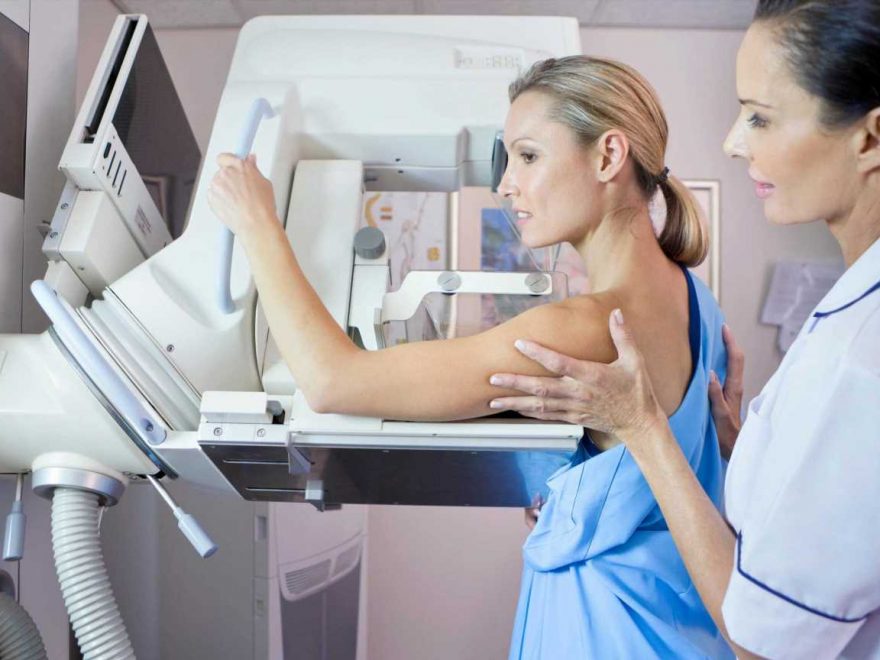MILLIONS of women are unaware about the different breast cancer treatments available, with almost a quarter believing that a mastectomy or double mastectomy is an inevitable result of diagnosis.
A study of 2,000 UK women found that despite leaps forward in innovation over the past few decades, 58 per cent feel ‘in the dark’ about different breast cancer treatment options on offer.

And 14 per cent are unaware there are different types of breast cancer.
But knowing there are different types of cancer and different treatments would make 38 per cent more likely to seek help earlier.
The study was commissioned by specialist global cancer care provider GenesisCare, whose spokesperson, Prof P.G. Roy, consultant oncoplastic breast surgeon, said: “We know that cancer diagnosis throws a curveball in an otherwise well person and sometimes there is a knee-jerk reaction to get started with treatment immediately.
“Timely treatment is crucial should you be diagnosed.
“However, taking time to understand the diagnosis and different treatment options available to you, helps to give you a greater sense of control.
“The innovations we’ve witnessed over the past years for the treatment of breast cancer means women can receive far more tailored and personalised treatment plans than ever before.”
The study found that after a breast cancer diagnosis, 31 per cent believe any surgery involved would be major, and half think it would leave them with lifelong scars (50 per cent).
Nearly a quarter (23 per cent) believe chemotherapy is included in all breast cancer treatment and 28 per cent think losing your hair is an inevitable side effect – when it doesn’t always have to be.
Additionally, women worry about how treatment will fit into their lives, with 42 per cent believing it will leave them feeling exhausted to the extent that they won’t be able to carry on with their daily routines.
And 70 per cent worry about how it would affect their family.
This lack of awareness also leads to heightened feelings of anxiety on the matter, as 85 per cent of those who were unsure about what treatment for breast cancer could involve, admitted the lack of knowledge made the prospect of receiving a diagnosis even more frightening.
A further 71 per cent admitted not knowing the full implications of treatment would leave them feeling unable to ask medical professionals the right questions.
A greater knowledge of treatments would dispel myths and give 52 per cent of women the confidence to know what questions to ask and where to get access to the right treatment option information (49 per cent).
It would also help to make 38 per cent feel more confident to seek an earlier diagnosis.
It’s also not just treatment where women feel in the dark, but in the stages of detection, as the study, carried out via OnePoll, found 55 per cent of women are unsure at what age they become eligible for screening.
More than one in 10 (11 per cent) believe it’s from the age of 25, when in fact it’s at 50 years old.
'START TALKING'
Amanda Mealing, actress, director, breast cancer survivor and campaigner said: “A breast cancer diagnosis can be a scary experience made worse by a lack of understanding of what to expect.
“I know it was for me. But it doesn’t have to be that way for anyone else.
“I’d encourage everyone to have open and honest conversations with medical professionals and support services. They are there for you.
“There are many different types of breast cancer and therefore different types of treatment options. But more than anything early detection is key.
"I ignored a small lump, which, had I sought help at the time would have prevented me going through the extensive treatment I did.
"That said, I did go through it all and am still here to share my story. Give yourself options. Start talking.”
Jonathan Prince MBE, chair of trustees at the Pink Ribbon Foundation, which has supported the research, added: “The research highlights that while breast cancer is a much talked about and understood topic at surface level, there’s still plenty more we can do to help women understand the nuances and differences in both detection and treatment.
“Facing breast cancer is an enormously difficult challenge for anyone – so it’s important for us to recognise where we can do more to broaden conversations, awareness and education among women.
“This will help them feel encouraged to raise any concerns as soon as possible and equipped to ask about the different options open to them at the stages of screening and treatment.”
We pay for your stories!
Do you have a story for The Sun news desk?
Email us at [email protected] or call 02077824104. You can WhatsApp us on 07423 720 250. We pay for videos too. Click here to upload yours
Click here to get The Sun newspaper delivered for FREE for the next six weeks.
Source: Read Full Article
